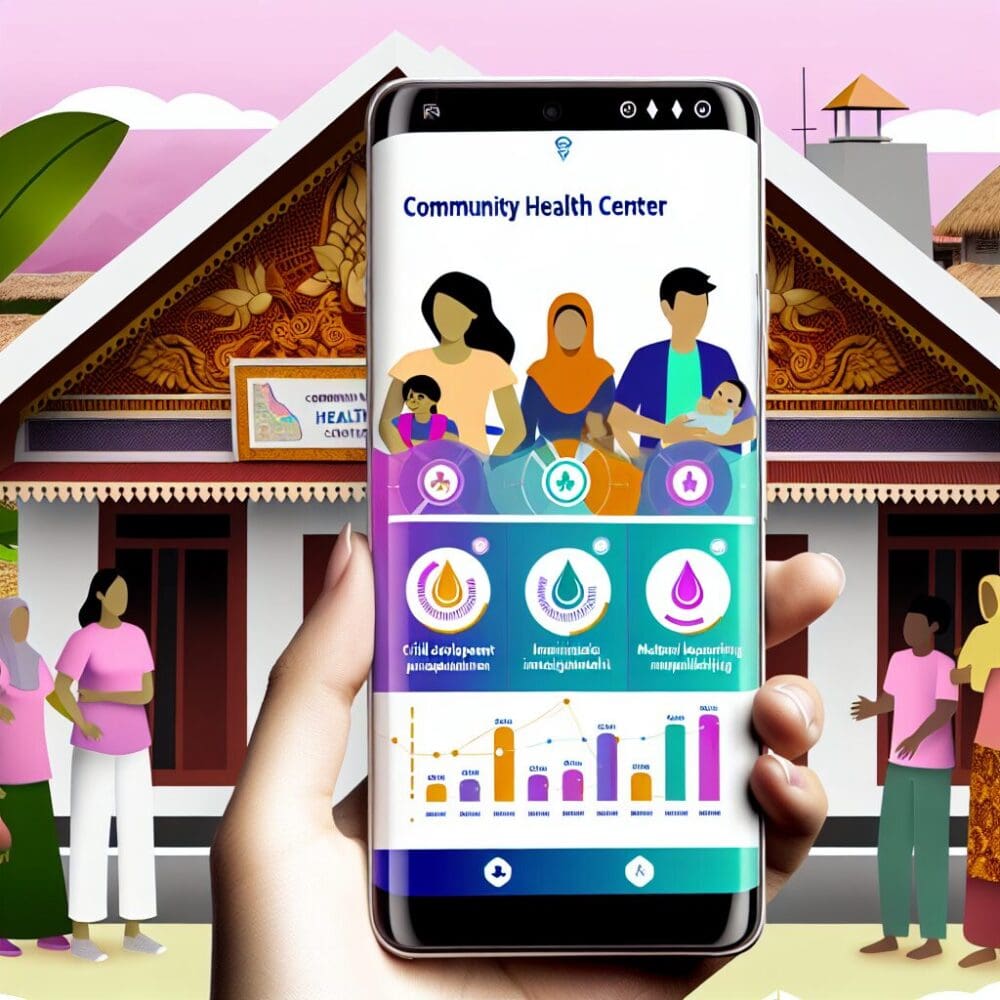“`html
Mobile App Development for Monitoring Posyandu Data in Indonesia: A Study
Introduction
In today’s fast-paced digital age, leveraging technology to facilitate public health initiatives has become critical. Indonesia, with its extensive network of Posyandu (Integrated Health Posts), is witnessing a transformative shift in how data is collected, monitored, and utilized. This study delves into the introduction of mobile app development to monitor Posyandu data, highlighting its significance and potential impact on public health services.
The Current Challenges in Posyandu Data Monitoring
Posyandu, an essential component of Indonesia’s community health programs, faces several challenges in data monitoring:
- Manual data recording which is prone to errors.
- Time-consuming and labor-intensive data entry processes.
- Lack of real-time data accessibility and analysis.
- Inconsistent data due to lack of standardized practices.
Given these challenges, it’s evident that a digital solution could provide a more reliable, efficient, and safer way to manage Posyandu data.
The Role of Mobile App Development
The adoption of mobile apps presents a promising solution to the aforementioned challenges. By utilizing mobile technology, Posyandu workers and healthcare providers can streamline their tasks and vastly improve the quality of healthcare services provided. Here’s how:
- Real-time Data Collection: Mobile apps can enable real-time data entry, reducing error margins and improving the accuracy of health records.
- Automated Data Processing: The apps can automate data processing, minimizing manual labor and freeing up valuable time for healthcare workers to focus on patient care.
- Data Standardization: By using a standardized format within the app, data consistency can be ensured across all Posyandu centers.
- Accessibility and Convenience: Mobile apps provide easy access to data anytime, anywhere, facilitating better decision-making and timely interventions.
Case Study: Implementation of a Posyandu Mobile App
Let’s examine a case study where mobile app technology has been successfully implemented in Posyandu centers:
Initial Steps
The implementation began with identifying the stakeholders, including Posyandu workers, healthcare providers, app developers, and government entities. Workshops and training sessions were conducted to familiarize Posyandu workers with the new technology and its benefits.
Application Development
The mobile app was designed with a user-friendly interface, keeping in mind the varying levels of tech-savviness among users. Key features included:
- Automated patient registration and record keeping
- Appointment scheduling and reminders
- Data analytics for monitoring health trends and outcomes
- Secure data storage compliant with health privacy regulations
Deployment and Integration
After a successful pilot phase, the app was rolled out to several Posyandu centers. The feedback from users was overwhelmingly positive, with reports of increased efficiency, improved data accuracy, and better patient care.
Outcomes and Benefits
The impact of the mobile app was substantial. Some of the key outcomes included:
- Enhanced Reliability: Data recording errors reduced significantly by 70%.
- Time Savings: Healthcare workers reported saving up to 30% of their time, allowing them to focus more on patient care.
- Better Patient Care: Timely data analysis facilitated early interventions, resulting in improved health outcomes.
- Scalability: The success of the pilot project led to plans for nationwide implementation.
Future Prospects and Recommendations
The success of the Posyandu mobile app opens up numerous possibilities for the future. If more health centers embrace digital transformation, Indonesia’s public health system can expect to see vast improvements. Here are some recommendations for expanding and optimizing the use of mobile apps in health monitoring:
- Develop continuous training programs to ensure users are well-versed in utilizing the technology effectively.
- Collaborate with technology partners to continuously improve and update the apps, integrating advanced features such as AI and machine learning.
- Engage with multiple stakeholders to secure funding and support for scaling the program nationwide.
- Create feedback loops where users can regularly provide insights for app improvements.
Conclusion
The move towards mobile app development for monitoring Posyandu data marks a significant step in improving Indonesia’s public health services. This innovative approach not only addresses the existing challenges but also sets the foundation for a more efficient, accessible, and reliable healthcare system. Facilitating the digitization of healthcare practices ensures that Indonesia can better support its communities, drive down error rates, and ultimately provide better health outcomes for its citizens.
“`




